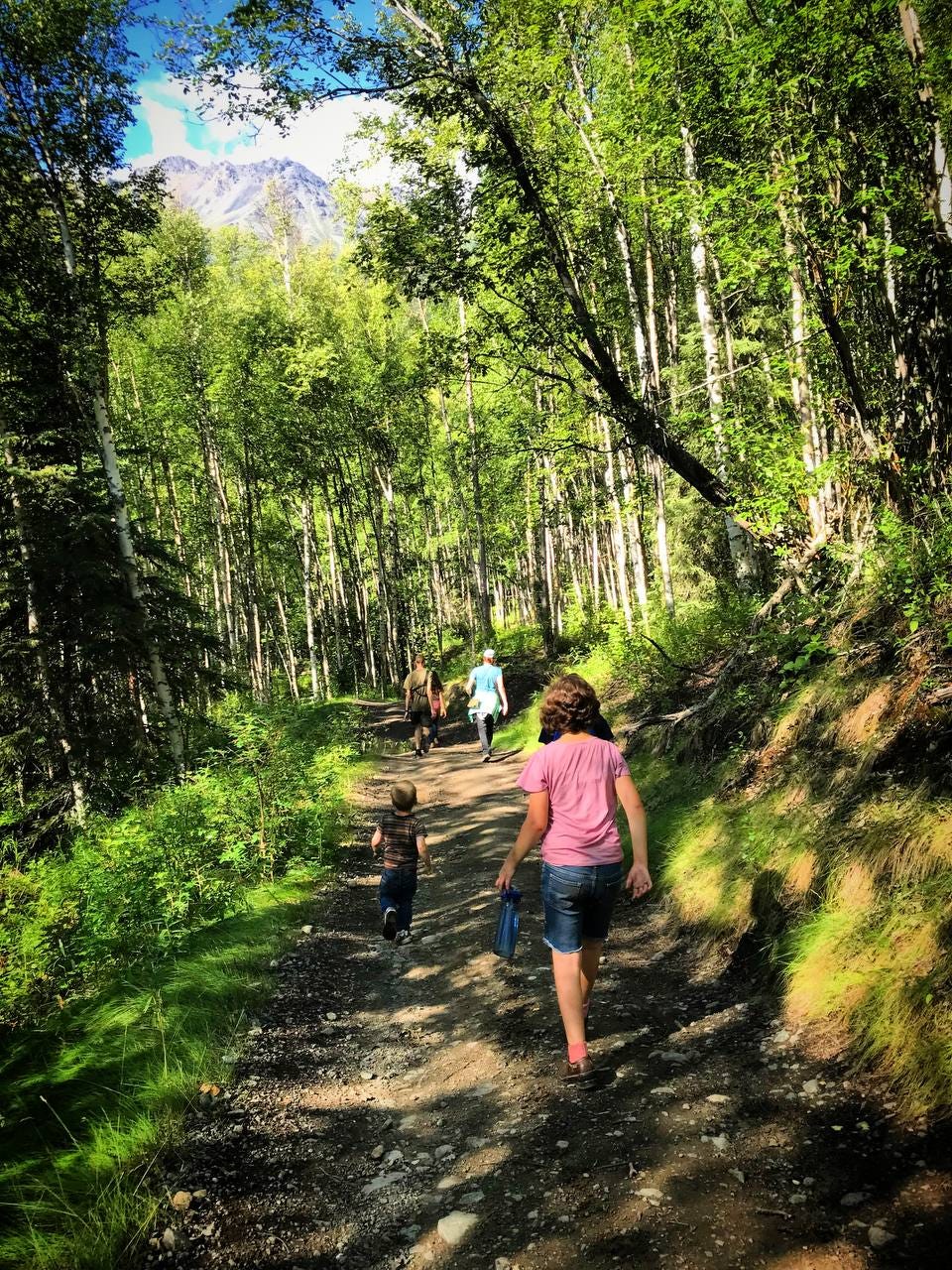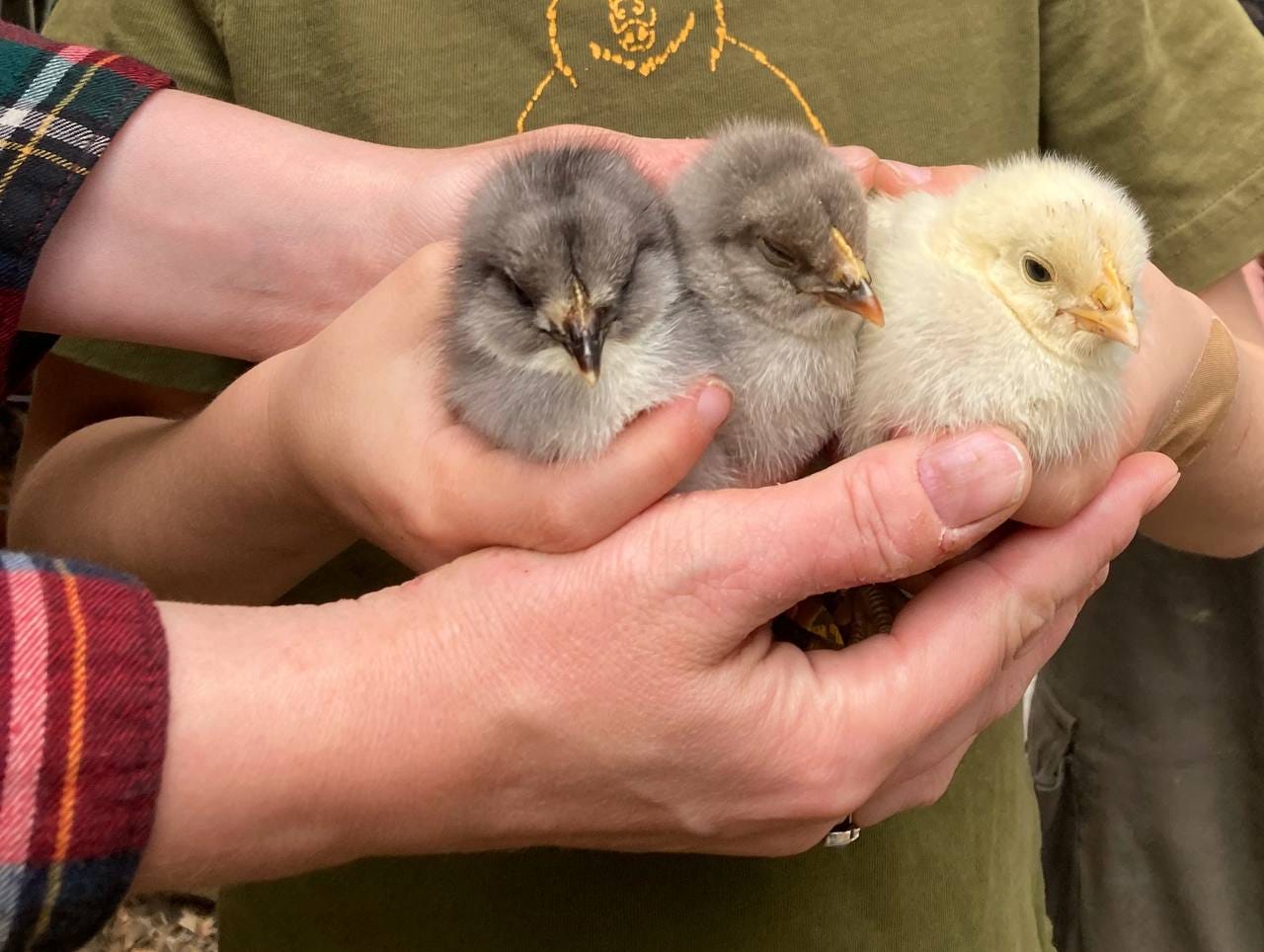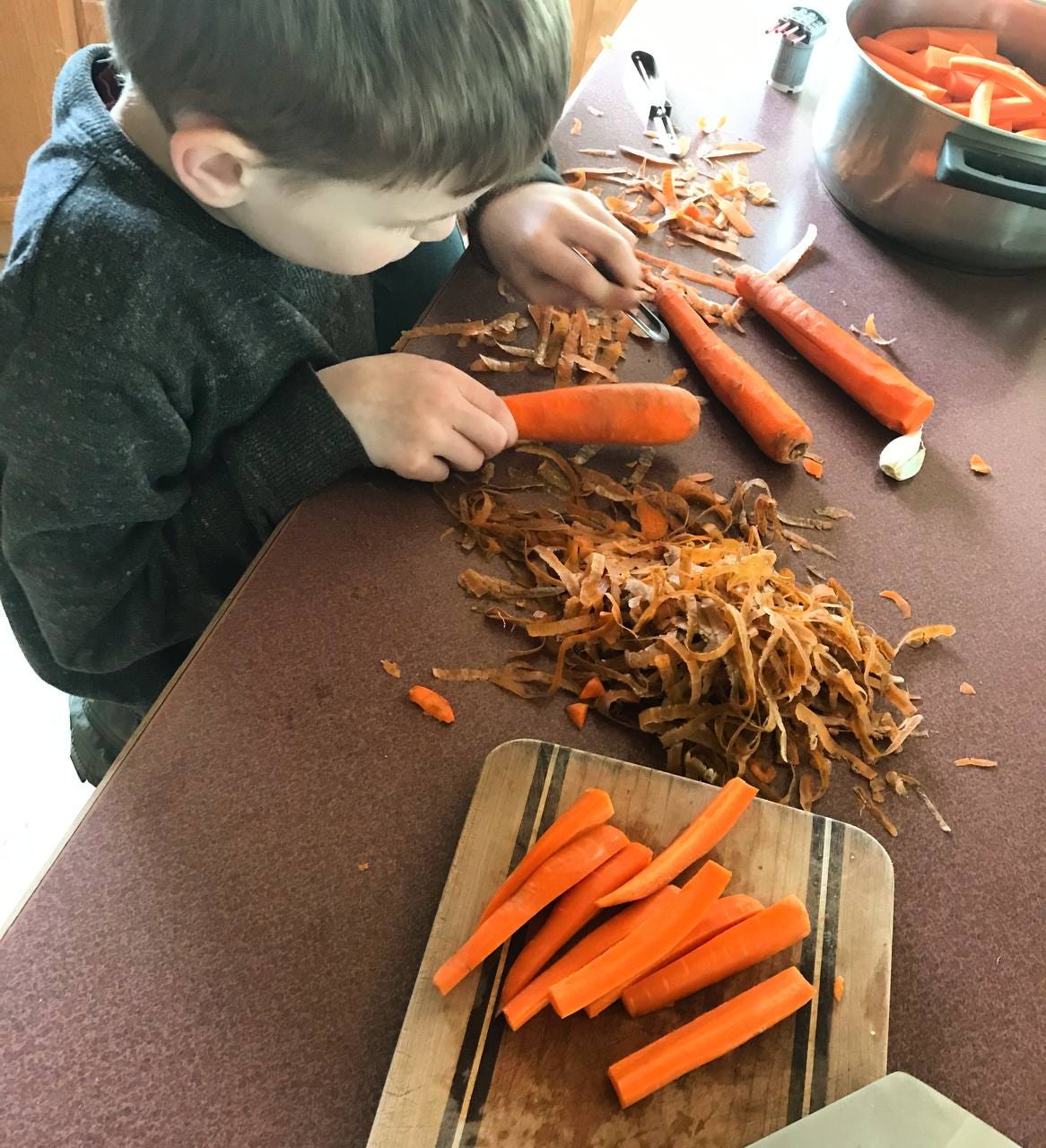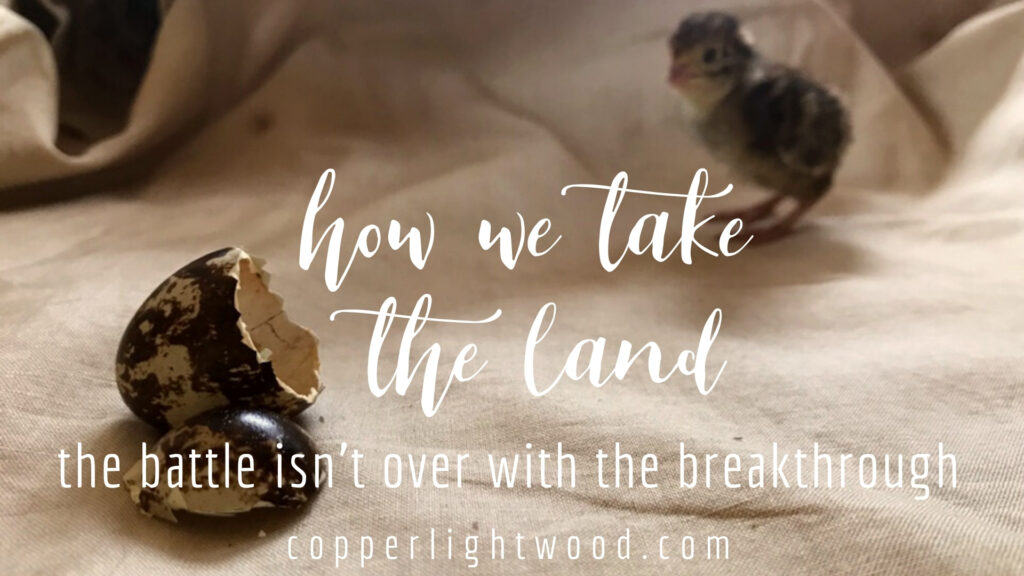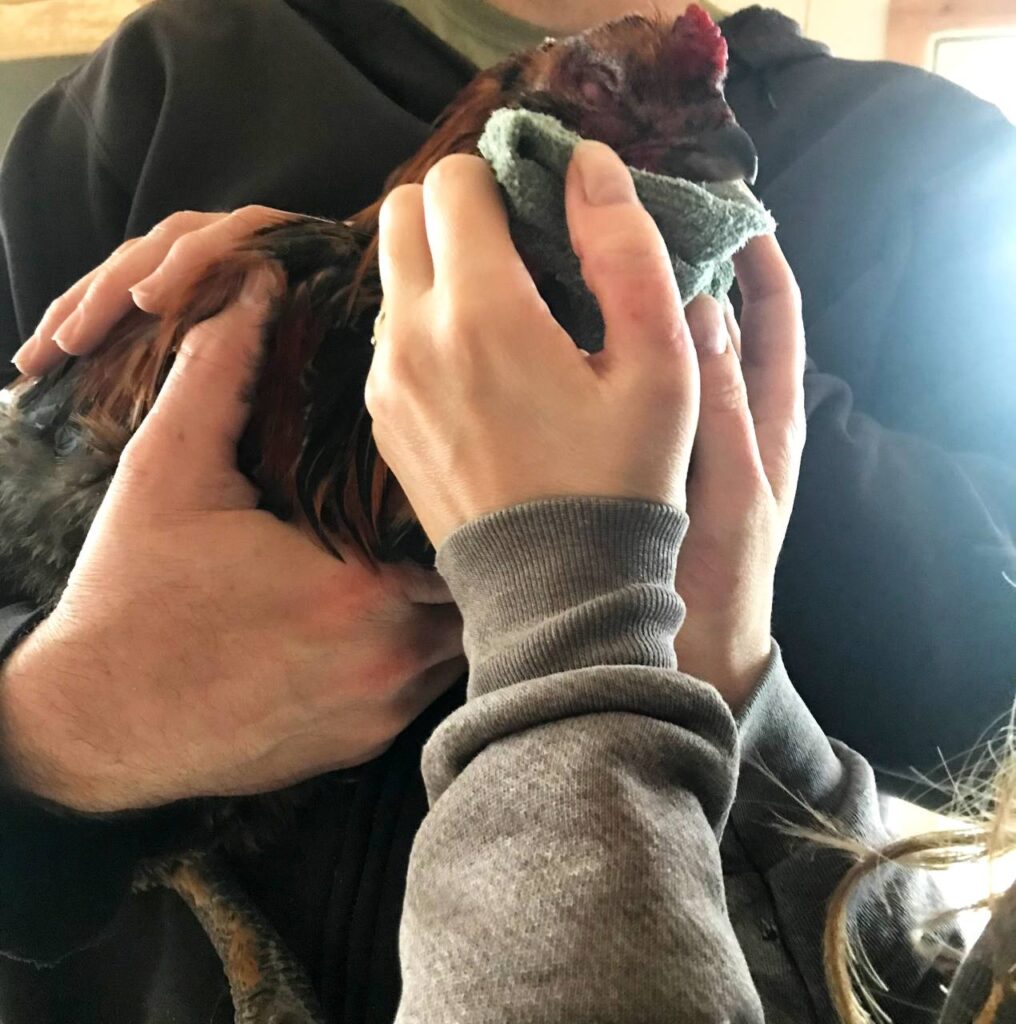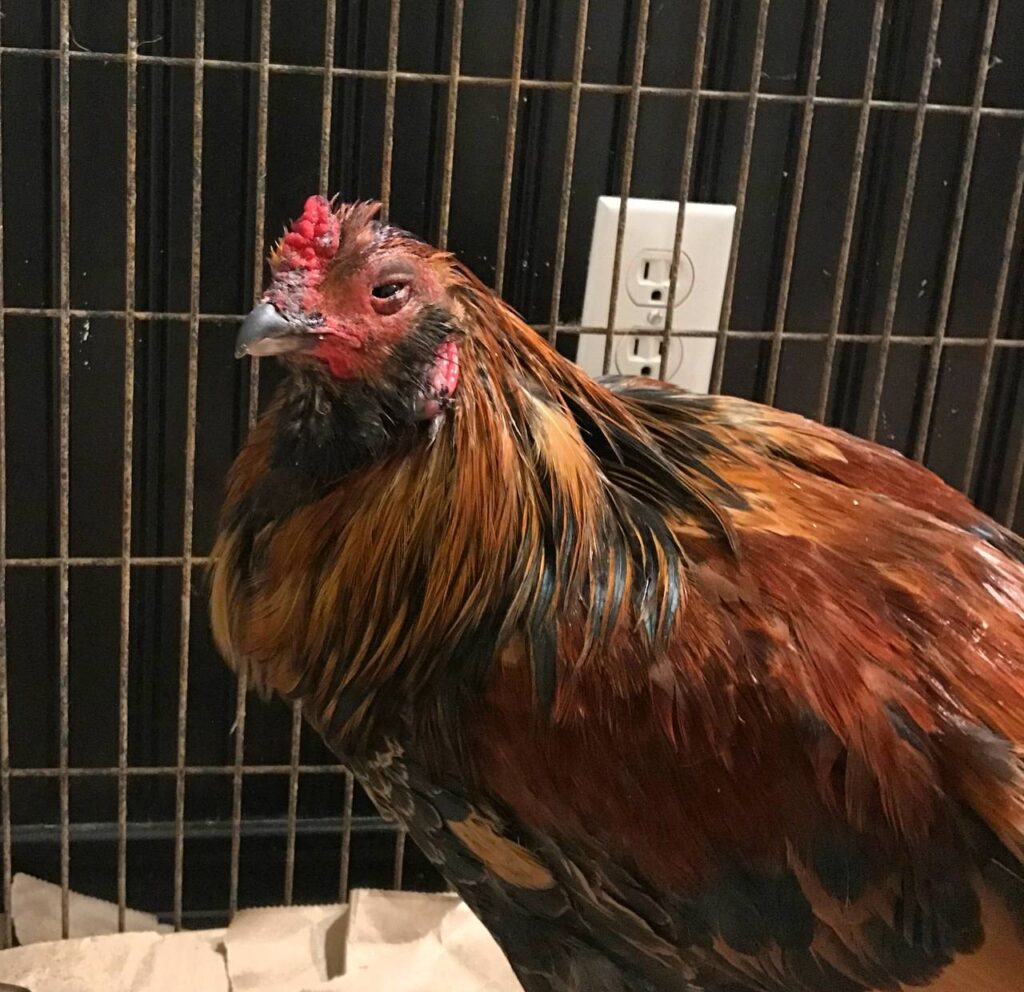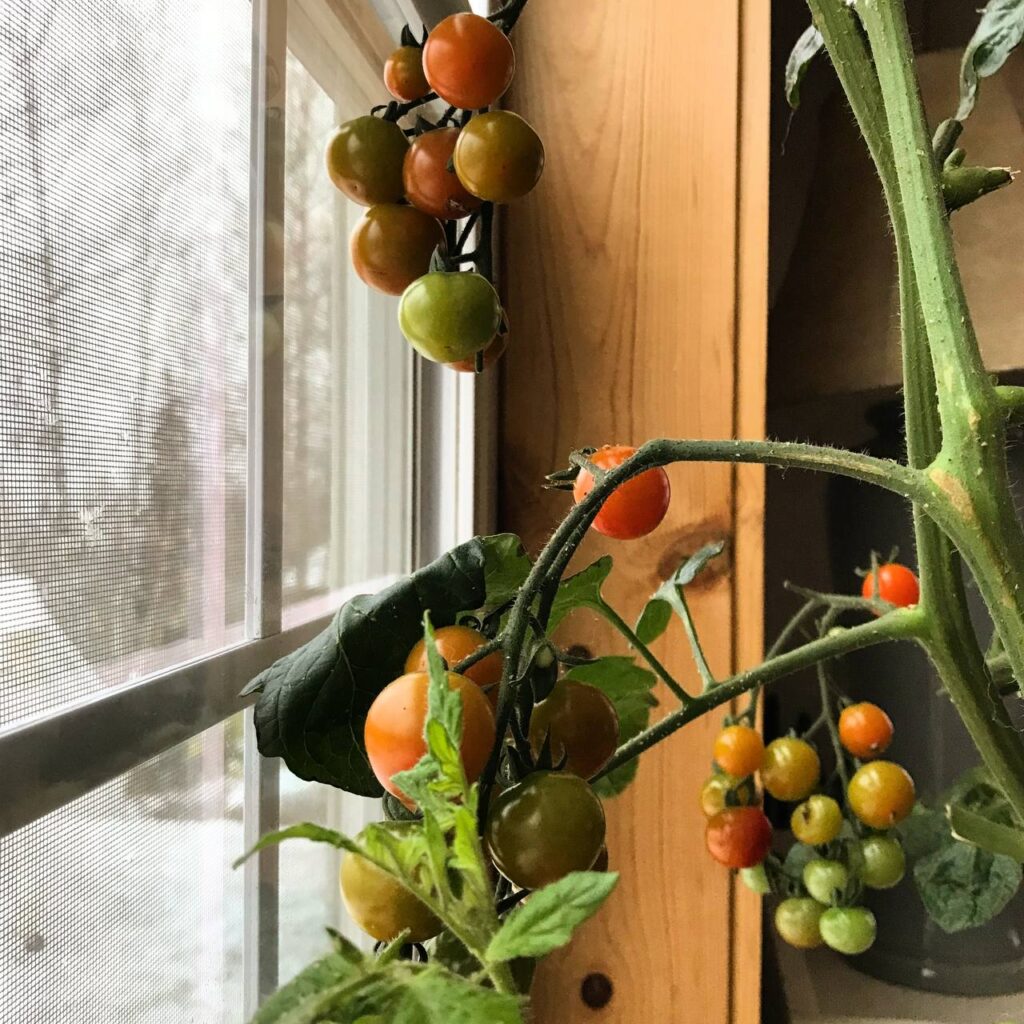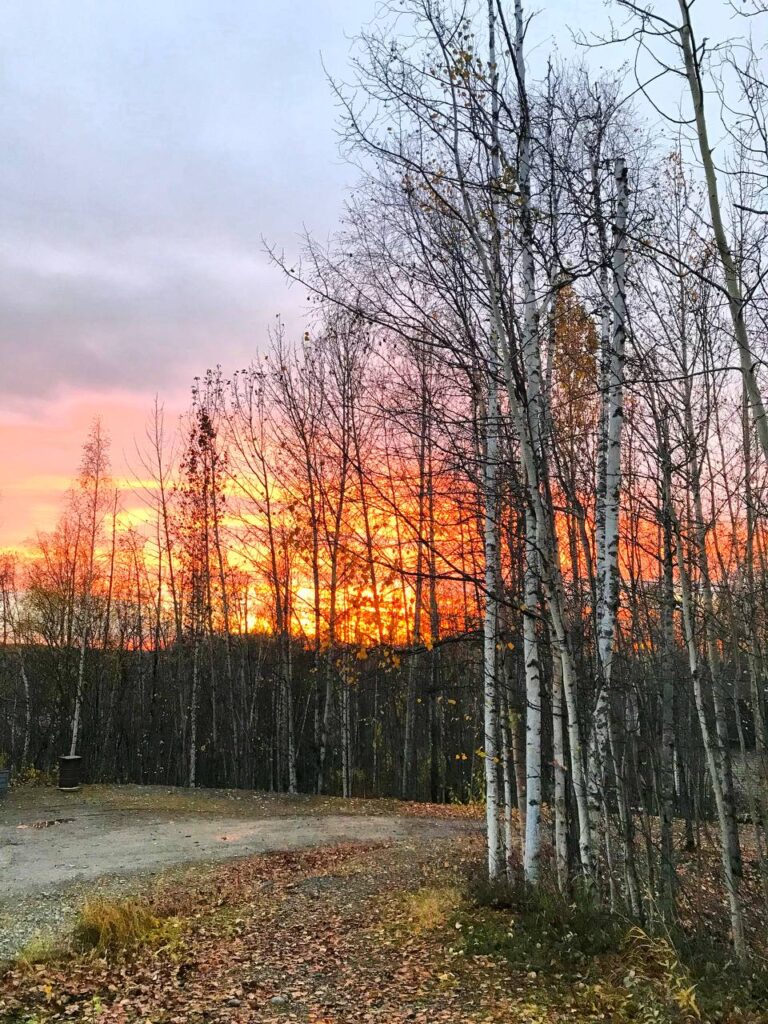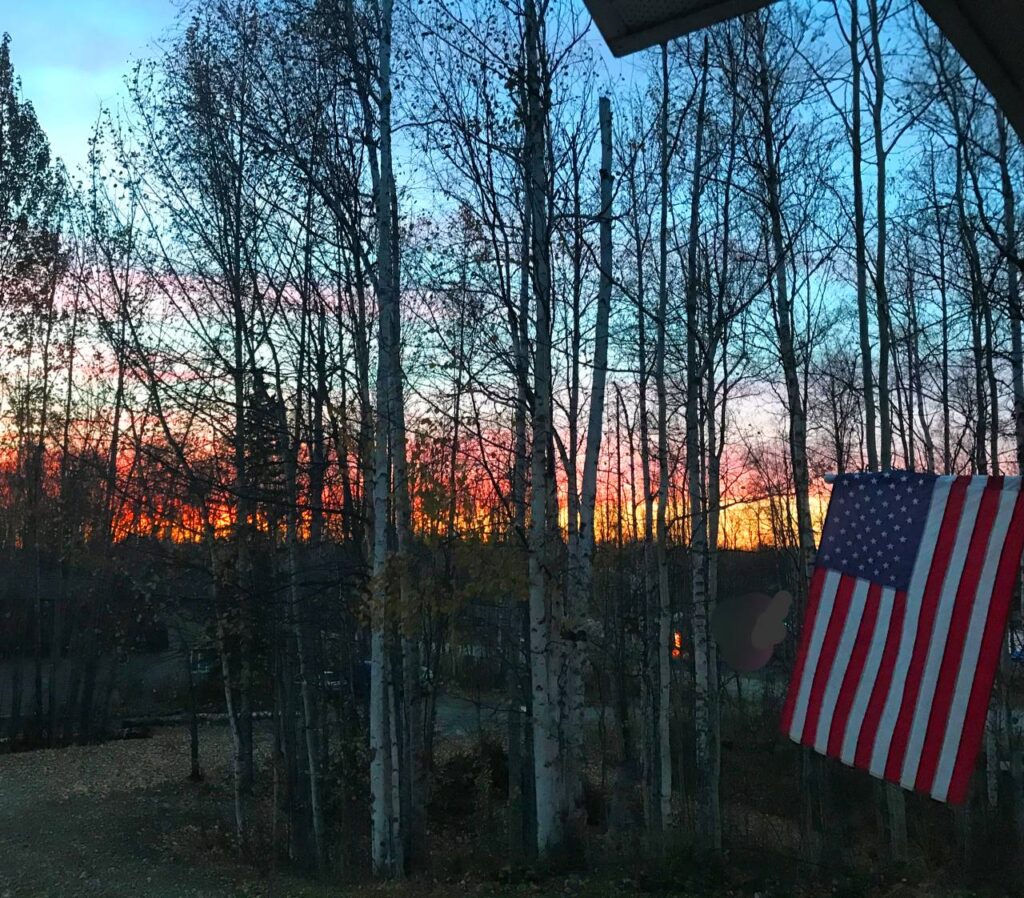It seems like when you live with boys, your immune system has the choice to either toughen up and be stronger than average, or to keel over and just let you die. So far, five boys later, I think we’re making it.

But here’s why it’s such a miracle: Boys do things – all kinds of things – except for washing their hands. Did you scrub the toilet? Check. Clean the catbox? Yes, ma’am. Scoop out the chicken coop? Uh huh.
And we, silly parents, ask these questions as we are watching them in the kitchen, spreading peanut butter on a tortilla. And then – and only then – do we remember to ask the obvious question, which should have been the first question, even though it’s too late anyway, the damage is done:
Did you wash your hands?
“Ummmmm….” Stalling is always a bad sign. Especially when it’s followed by an almost silently whispered, “nope.”
Serenity now, Lord Jesus.
Vince and I sit on the couch dumbfounded as the boy drops the lunch implements on the counter and runs to the bathroom. I consider donating the entire container of peanut butter to the chickens, and Vin quietly but dramatically pleads the blood of Jesus over our entire home, asking for a special consecration over the fridge and silverware drawer.
(Side note: This post might prevent any dinner guests from accepting invitations for the next three months.)
There are so many things that could go wrong, and it’s best not to think of them. It’s best just to be grateful for grace, for strong immune systems, for a life that allows for such activity, and for healthy boys who are (please God) learning good habits.
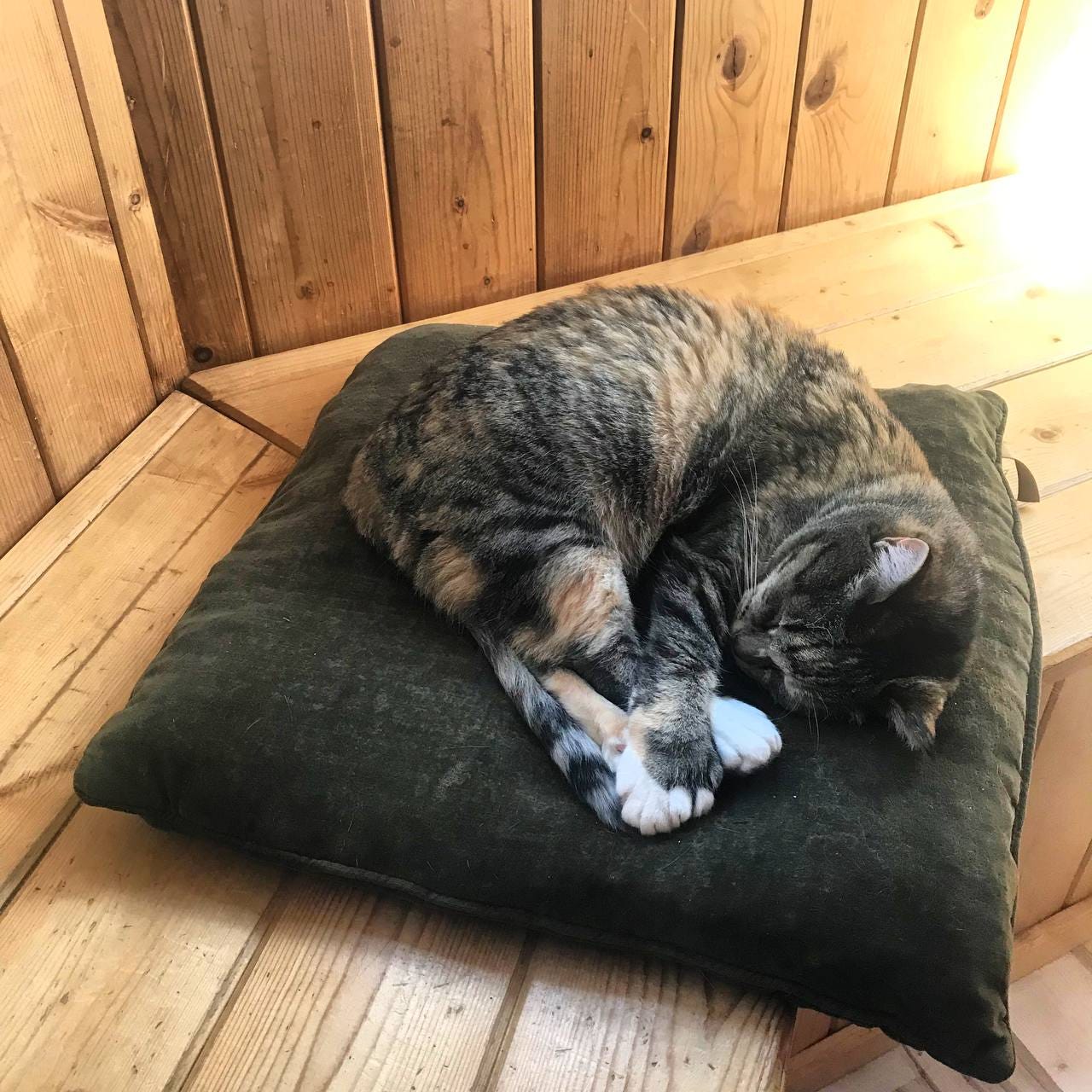
And this is good to remember at night, or more accurately, at 3 or 4 am, when panicked thoughts about chickens and homeschool and kids’ behavior and inflation and taxes and paperwork and vehicle woes and world events and a million other valid concerns start crowding in as you lay there, wide awake, wondering if you’re going to make it. There are so many things that could go wrong, and it’s best not to think of them.
But we do think of them. Many of them require action on our part – like making an appointment, or paying a bill, or filling out forms, or disciplining children, or disciplining ourselves, or being more frugal…and all these actions require thinking.
But what is not required is worrying, or partnering with fear, or expecting the worst. None of those have to be in our thinking, though they tend to be our default.
So we need to be rewired. We need to forge new pathways for better thoughts.
For though we walk in the flesh, we are not waging war according to the flesh. For the weapons of our warfare are not of the flesh but have divine power to destroy strongholds. We destroy arguments and every lofty opinion raised against the knowledge of God, and take every thought captive to obey Christ.
– 2 Corinthians 10:3-5
Have you ever considered that agreeing with fear – which is what worry is – is making a “lofty opinion raised against the knowledge of God?” It is.
God is not worried or fearful. And we have the mind of Christ, and we can trust God…so we need to agree with Him. (Listen, self.)
Now this I say and testify in the Lord, that you must no longer walk as the Gentiles do, in the futility of their minds. They are darkened in their understanding, alienated from the life of God because of the ignorance that is in them, due to their hardness of heart. They have become callous and have given themselves up to sensuality, greedy to practice every kind of impurity.
– Ephesians 4:17-19
This isn’t usually how we apply this scripture, but roll with me here: If we have a belief that truly sets us apart from our old ways, our thinking should demonstrate that. But worry is futile, a darkened understanding. Worries are ignorant of God’s love and trust; when we worry we are hardened in our old paths and ways of thinking.
And we wouldn’t normally associate it with making us callous or greedy, but consider…when we indulge in fretting and fears, are we not giving ourselves up to a sort of sensuality? Isn’t the distrust of God’s goodness and love an act of impurity?
Huh. Still thinking on this. It goes on:
But that is not the way you learned Christ!— assuming that you have heard about him and were taught in him, as the truth is in Jesus, to put off your old self, which belongs to your former manner of life and is corrupt through deceitful desires,
and to be renewed in the spirit of your minds,
and to put on the new self, created after the likeness of God in true righteousness and holiness.
– Ephesians 4:20-24
We have lain there awake in seasons of waiting and waiting, crying out for breakthrough, telling God, “I know You’re good and faithful, but this is still so hard, so it must be that I’m not good and faithful.”
And He reminds us that victory is not a pass/fail test or a zero sum game because things are much more complicated than what we are seeing. We are seeing “if not this, then this” but reality is “not this or this or this, but all these other things in varying degrees and intensities.”
Many, many things are actively in the process of working out. Together. All at the same time, and all at different times. And in the meantime, it looks like a mess.
Will we make it, though? we ask in desperation.
Did you make it in 2004? He asks, turning the question around. Did you make it in 2007, and 2008, and 2011, and 2012, 2013, and every year since then? Did you make it when you didn’t know where you’d go in 2017? Did you make it when the rug was pulled out from under you in 2018? Did you make it through the chaos and stupidity of 2020, and the upheaval in 2022?
Did you make it last year, Love?
Yes. Over and over, in every crisis, real or perceived – we made it.
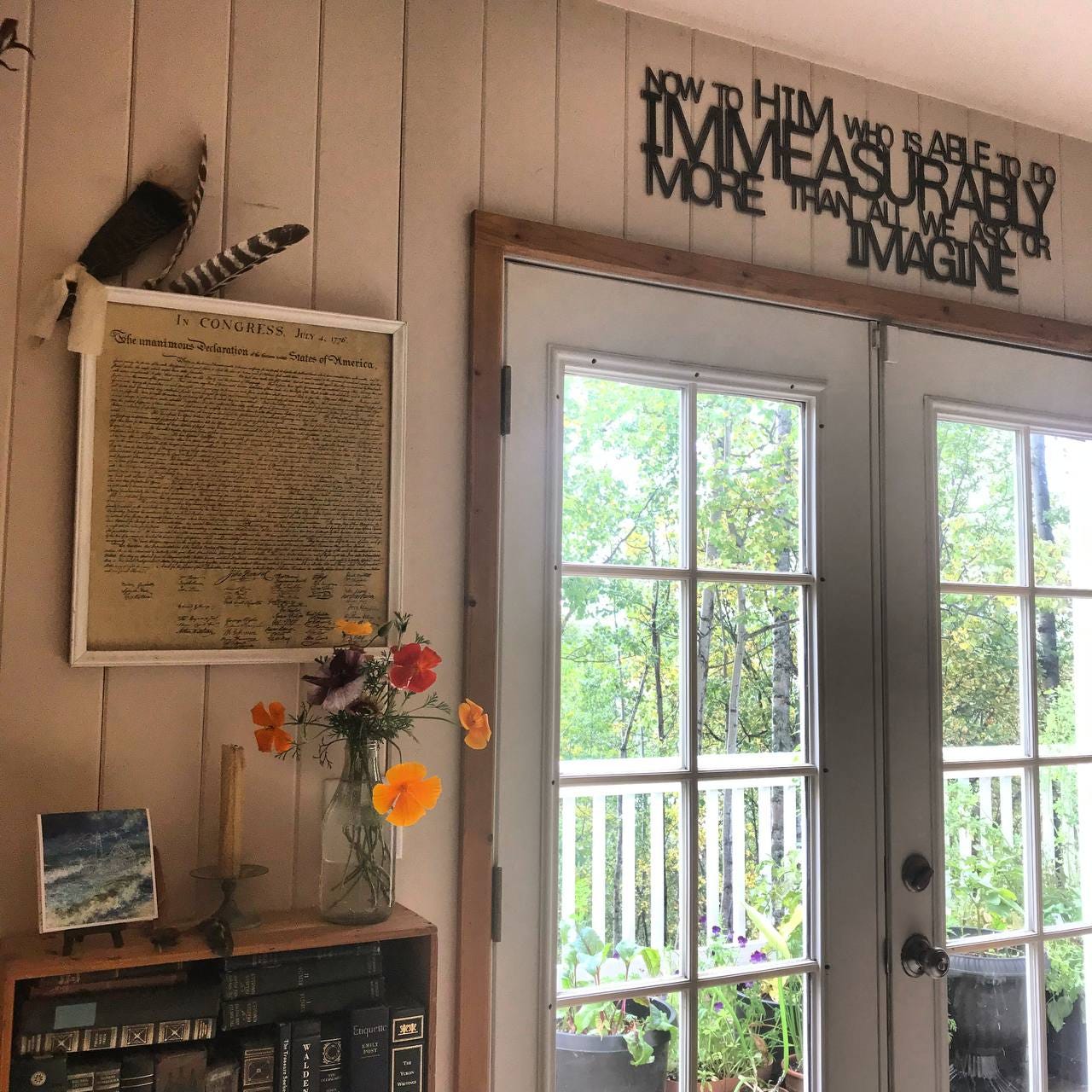
So we have something still to do:
I appeal to you therefore, brothers, by the mercies of God, to present your bodies as a living sacrifice, holy and acceptable to God, which is your spiritual worship.
Wait, this is me interrupting again. Is our mind – our brain – part of our bodies? Yes? So our thoughts also should be presented as a living sacrifice. This is where we make the sacrifice of praise even when it still doesn’t feel praiseworthy yet. We lay there in the midst of the flying fears and whisper Thank You because we know He’s in control and He loves us and He has this all covered, even when we don’t know what to do. (He knows how dumb we are, remember. And that is a huge comfort.)
Okay, carry on:
Do not be conformed to this world, but be transformed by the renewal of your mind, that by testing you may discern what is the will of God, what is good and acceptable and perfect.
– Romans 12:1-2
If agreeing with fear is an example of being conformed to this world (and it is, I’ll fight you over it) then rising above the fear and thanking God that we can trust Him while we let go of our regrets and insecurities and assumptions and negative imaginings…is one way we are transformed by the renewal of our mind.
We choose the thoughts that get to play. Fear wants us to just keel over and die, but God has made us to be stronger than average.
Has everything always turned out the way we wanted? No. It’s still a fallen world, a clean-up operation.
But so much has turned out better than we could’ve imagined. We’re all making it. And as we’re grateful to God and trusting Him, renewing our minds and offering the sacrifice of praise, we’ll continue to do so.
After car accidents and miscarriage and illness and grief and bank failures and huge expenses and big risks and unexpected pregnancies and medical corruption and corporate gaslighting and global deception and financial loss and leaving the familiar and starting over when it seemed like the most foolish thing to do… we made it. And you did, too.
We all made it. And here we are, by the mercies of God.


